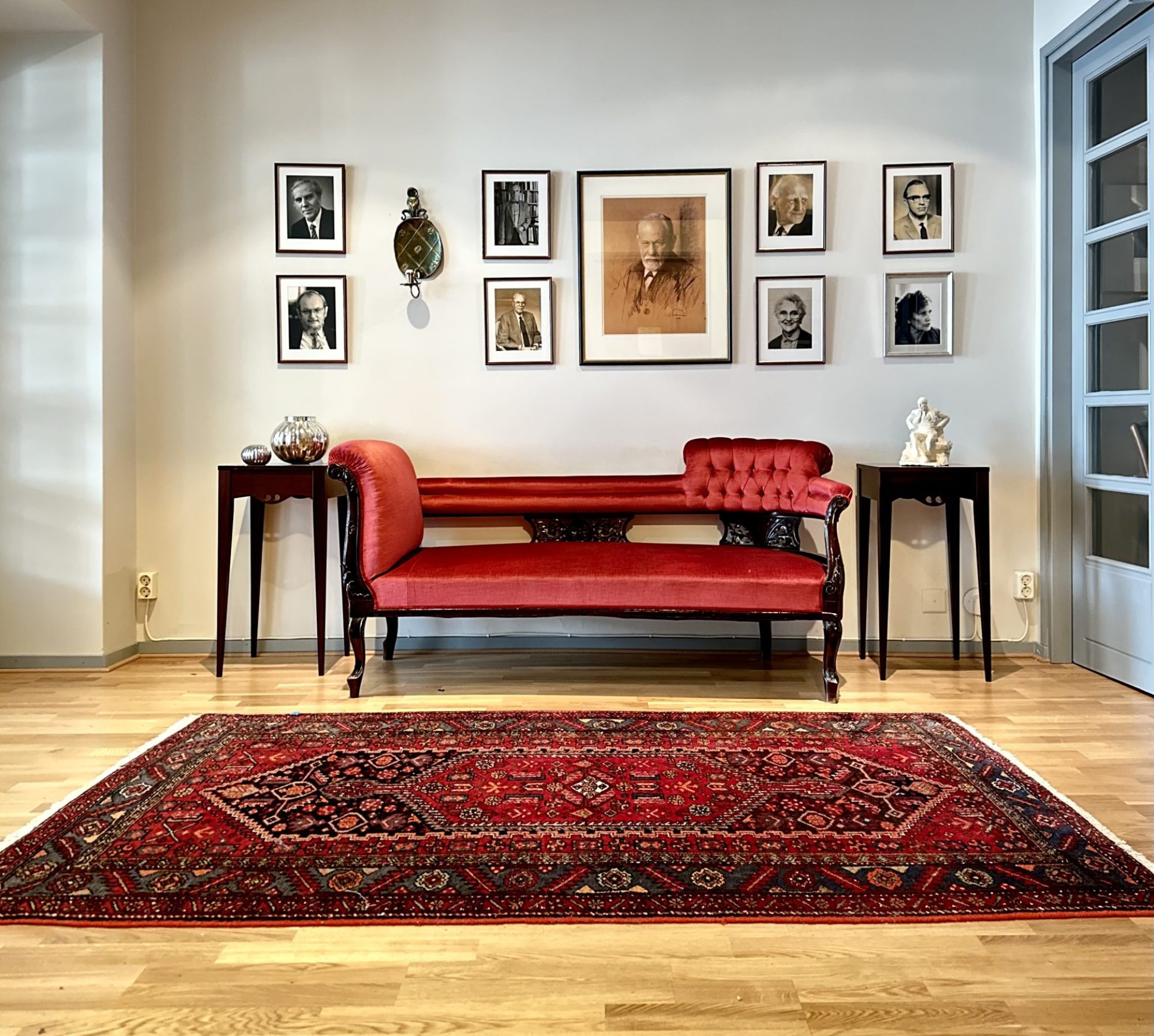Päiväys ja aika
Date(s) - 13/09/2024 - 14/09/2024
09:00 - 16:00
Tapahtumapaikka
Seminaarinmäen kampus
Kategoriat
Suomen Akatemian hanke “Asymmetric Encounters: Intersubjectivity and the Sense of Boundaries” yhteistyössä Suomen Psykoanalyyttisen Yhdistyksen kanssa järjestää koulutustapahtuman
”Äidit, isät ja muut: Uusia näkemyksiä psykoanalyyttisiin teorioihin varhaisesta vuorovaikutuksesta”
Koulutustapahtuma kokoaa keskeisiä psykoanalyyttisia tutkijoita keskustelemaan kysymyksistä, mikä on sukupuolen rooli vastasyntyneen hoidossa, milloin ja miten hoitajan sukupuolella alkaa olla merkitystä vauvan näkökulmasta, miten ajatella oidipaalisia kysymyksiä perheiden monimuotoisuuden näkökulmasta ja missä määrin perinteinen maskuliinisen ja feminiinisen vastakohtaisuus sopii yhteen ei-binaarisen sukupuolikäsityksen kanssa.
Jos halutaan voida väittää, kuten toivomme, että psykoanalyyttisella ajattelulla on paljon tarjottavaa nyky-yhteiskunnalle ja nykypäivän tieteelliselle teoretisoinnille, tällaisten kysymysten huomiotta jättäminen merkitsisi perinteisten, juurtuneiden vanhempien roolien normatiivisen aseman vahvistamista.
Psykoanalyyttinen perinne antaa oman ainutlaatuisen panoksensa ihmisyyttä, hyvinvointia ja psykologista kehitystä koskeviin ydinkysymyksiin. Tämän koulutustapahtuman tavoitteena on edistää elävää, ajatuksia herättävää ja tulevaisuuteen suuntautuvaa keskustelua psykoanalyyttisista aiheista.
Aika: 13.-14.9.2024
Paikka: Jyväskylän yliopisto, Seminaarimäen kampus
Puhujia: Lesley Caldwell (Lontoo), Gunnar Karlsson (Tukholma), Katrine Zeuthen (Kööpenhamina), Eija Repo, Henrik Enckell, Eeva Pihlaja, Joona Taipale
Järjestäjä: Joona Taipale ja Eeva Pihlaja, Suomen Akatemian hanke “Asymmetric Encounters: Intersubjectivity and the Sense of Boundaries” yhteistyössä Suomen Psykoanalyyttisen Yhdistyksen kanssa.
Ilmoittautuminen: Tapahtuma on ilmainen avoin kaikille, mutta ennakkoilmoittautuminen edellytetään!
Voit ilmoittautua tämän linkin kautta: https://docs.google.com/forms/d/e/1FAIpQLSdx0DsZzAN0zbGvKVS-0ba3llJ0KnueNl4qGolM_9h9R9XoMw/viewform?usp=sf_link
Ohjelma:
Friday, September 13
09:00-09:30 Opening words
09:30-10:30 Lesley Caldwell (London): “The centrality of mothers in the foundational discourses of psychoanalysis. Time for revaluation?”
10.30-11.30 Commentary and general discussion: Eija Repo
11:30-13:00 Lunch
13:00-14:00 Joona Taipale (Jyväskylä): “Winnicott and the environment- father”
14:00-14:30 Coffee
14:30-15.30 Commentary and general discussion: Eeva Pihlaja
Saturday, September 14
10:00-11:00 Gunnar Karlsson (Stockholm): “The early interaction of the primary caregiver and the infant with respect to sex/gender”
11:00-12:00 Commentary and general discussion: Henrik Enckell
12:00-13:30 Lunch
13:30-14:30 Katrine Zeuthen (Copenhagen): “A search for knowledge and the quality of doubt”
14:30-15:00 Coffee
15:00-16:00 Commentary and general discussion: Joona Taipale
Kuvaus:
The psychoanalytic tradition has long operated with a very traditional idea of a family, in that the earliest interactions have been considered to be normally taking place between the child and the mother, whereas fathers allegedly enter the scene at a later stage – thus giving rise to the Oedipal dilemma. Naturally, this way of thinking about the developmental setting reflects the way of thinking prevalent at the time that psychoanalytic theories were first formed. What causes puzzlement, however, is that such assumptions still seem rather prominent in contemporary psychoanalytic thinking. To be sure, after Freud, psychoanalysts focused on pre-Oedipal stages of development, thus extending the initial Freudian scope. Yet, the traditional distribution of parental roles still continually make itself felt – this is visible not only in the fact that the mother-father combination is easily taken as the ‘default value’ of parenting, but also the way specific attributes and tasks are assigned to the caregivers: mothers are often viewed as providers of tenderness, continuity, and intimacy, whereas fathers are presented as figures that activate, excite, and introduce norms and boundaries to the developing child. While there are also those who explicitly defend such traditional division of parental roles, using mainly arguments from biology, the normative roles are more often simply taken for granted. The persistence of such assumptions, despite the immense societal changes over the past one hundred years, easily gives an impression that they are somehow built into the psychoanalytic thinking. What would happen if instead of rigid sex-based binary parental roles one would start speaking of “caregivers” more neutrally? Would something crucial be lost? Would something important be gained? Would such an updating procedure be detrimental to the psychoanalytic way of thinking?
The conference – “Mothers, fathers, and others: New insights into psychoanalytic theories of early interaction” – takes up the challenge and gathers central psychoanalytic scholars to discuss the following questions in particular: What is the role of gender in the care of the newborn infant? When and how does the sex of the caregiver begin to matter from the infant’s perspective? How to think about Oedipal issues from the perspective of diversity of families? To what extent is the traditional opposition between “masculine” and “feminine” compatible with a non-binary conception of gender? If one wishes to argue, as we hope to, that psychoanalytic thinking has a lot to offer for contemporary society and for the scientific theorization of today, questions like these cannot be left hovering in the air – ignoring such questions would only amount to tacitly strengthening the normative position of the traditional ingrained parental roles. We feel that the psychoanalytic tradition contributes uniquely to core questions about humanity, wellbeing, and psychological development, and the event at hand is an attempt to foster a lively, thought-provoking, and forward-looking discussion on psychoanalytic understanding of caregiving and parental roles.


